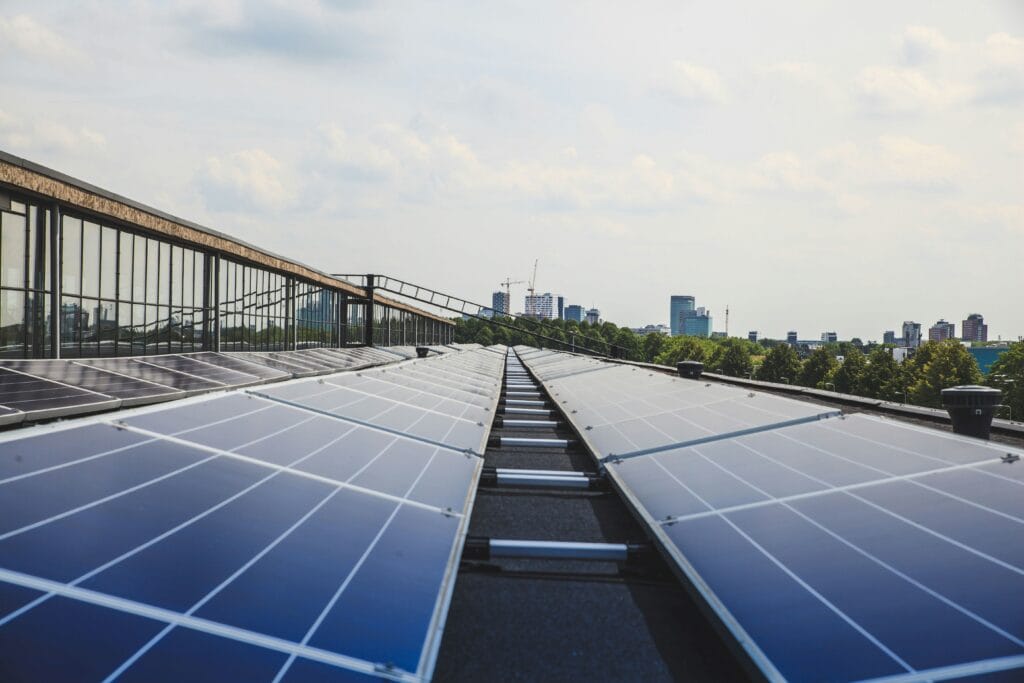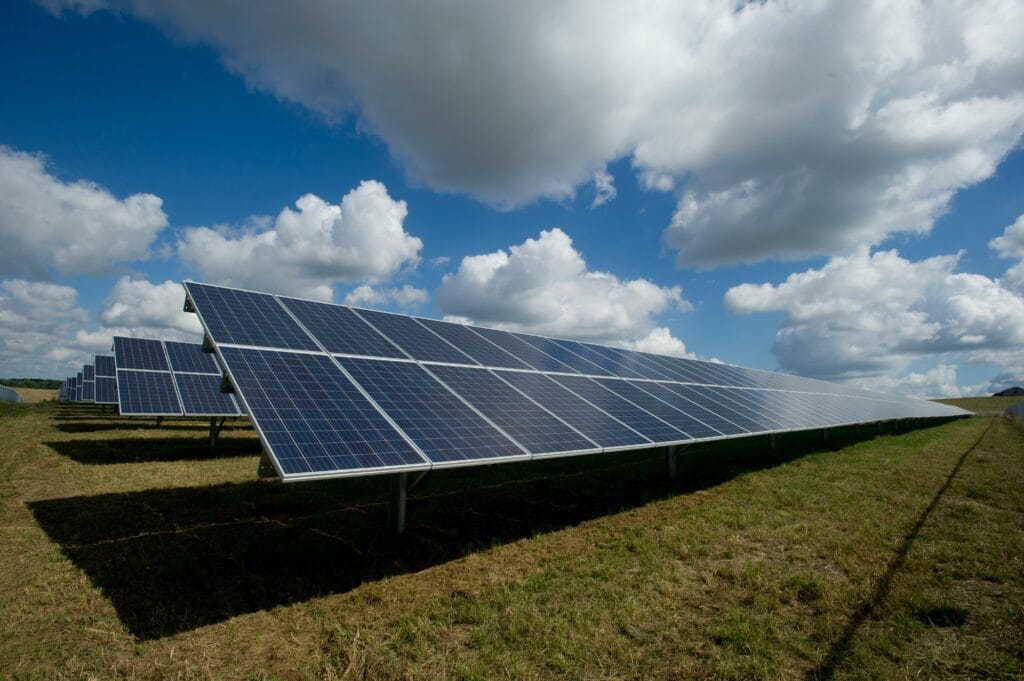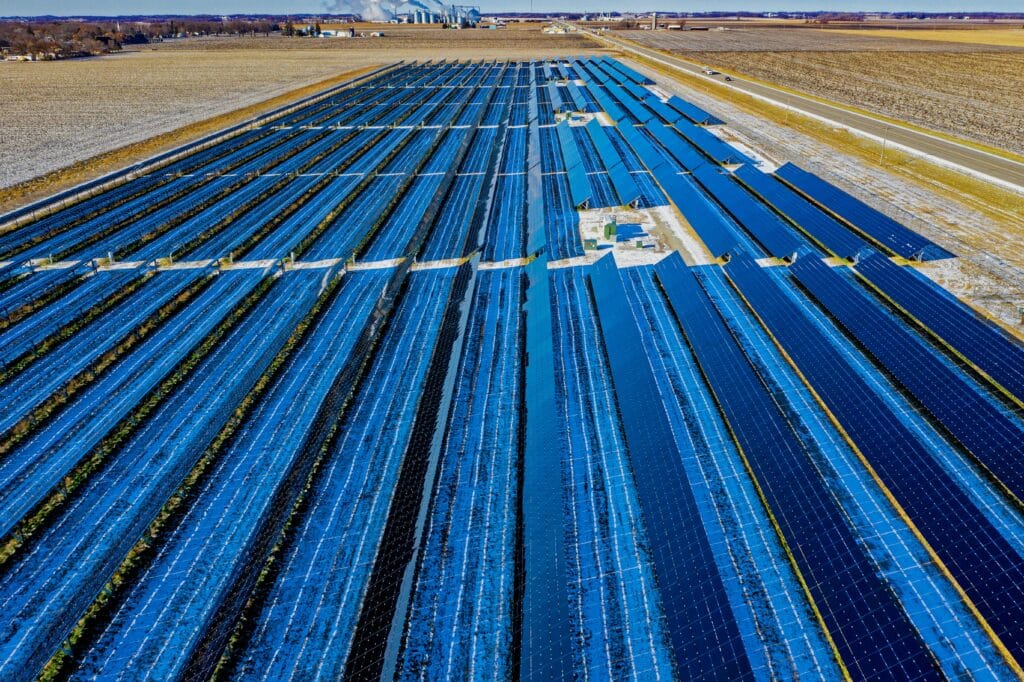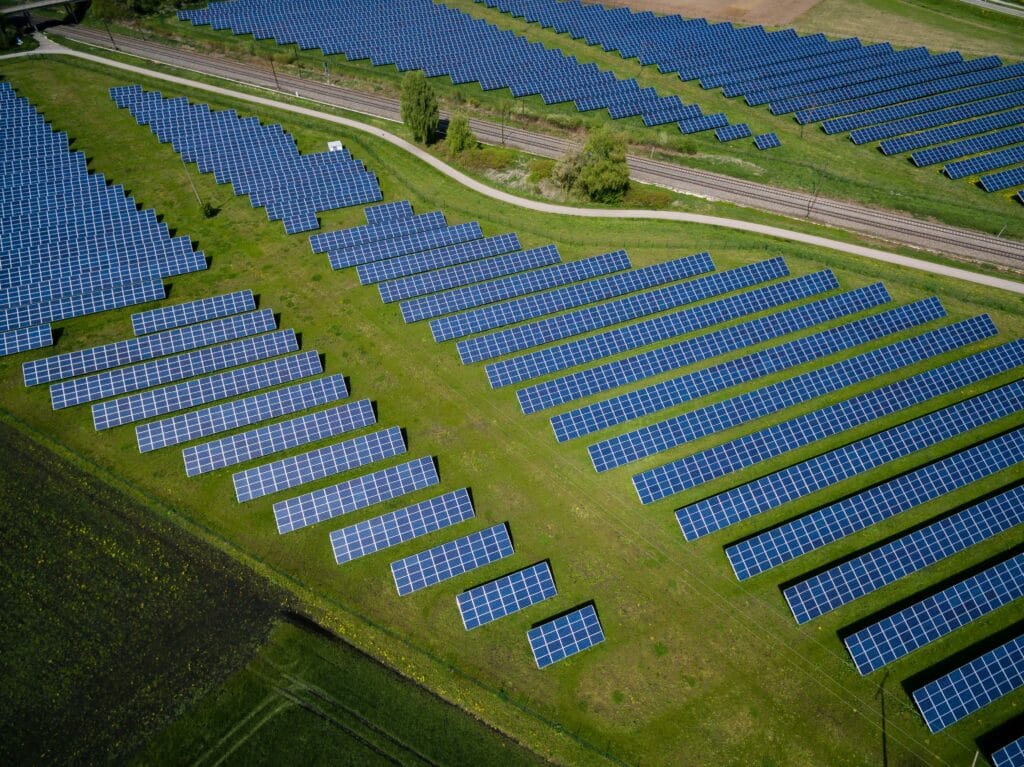In the last few times, Pakistan has experienced significant shifts, especially in the energy sector, in which solar power has been considered a possible solution to Pakistan’s ongoing energy shortages. However recent tax on solar panel Pakistan, the evolution of policies and political instability & Tax On Solar Panels Pakistan has caused the solar panel industry to be in chaos.
This article gives a complete overview of the present state for solar panel installations in Pakistan in order to highlight the effect of the new tax regime and political climate over the last two months, as well as discussing the potential for future growth of renewable energy in Pakistan.
Table of Contents
Solar Energy in Pakistan: A Brief Overview
Pakistan has been battling an energy shortage for a number of years as it has faced frequent outages of electricity and rising prices for fuel, and a widening gap between demand and supply. Due to its geographic position, Pakistan has immense potential to make use of solar panels energy. With a constant supply of sunlight solar panels can bring an environmentally friendly secure, sustainable and reliable solution to Pakistan’s energy issues. In recent times, there has seen a rise in the number of solar panels both in rural and urban areas, as people and companies look for alternatives to costly and unstable grid power.

The federal government initially pushed for the adoption of solar power by providing diverse incentives, including tax-free imports of solar panels as well as related equipment. This, in conjunction and the net-metering program, that allowed users to sell surplus solar panels energy back to the grid making solar power an appealing opportunity. However recent developments, specifically regarding the sales tax and policy changes are posing significant obstacles for the solar panels industry.
The New Tax Landscape: Impact on Solar Energy
In its most recent budget in the last budget, the Pakistani government Pakistan announced a variety of new taxes with the aim of raising revenue and stabilizing the economy. However, these taxes resulted in a direct, adverse impact on solar power industry. In the past, imports of solar panels, photovoltaic cells and other equipment related to solar were exempted from tax on sales as well as customs duty. This exemption allowed solar power to be cheaper to a broad range of customers, ranging from small households to large corporations.
However, under the current tax system the exemptions have been eliminated. It is now the FBR (Federal Board of Revenue) has introduced an more tax on sales for the purchase and import of solar panels as well as their accessories. In the process, the cost of constructing or maintaining solar panels has gone up dramatically, making solar power difficult to the typical Pakistani consumer. Sales tax has also changed the price of photovoltaic cell, which are the primary part of the solar panels. This improve in prices has reduced enthusiasm for solar energy in those who had previously been looking to invest in renewable energy solutions.

In the solar industry the effect has been devastating. It is evident that the rise in the price of solar panels as well as equipment has hindered the use in the field of solar panels. Businesses that deal in the sale or installation of solar panels seen an rise in sales, as customers struggle to cope with the rising cost. The solar panels energy industry was once viewed as a signpost of optimism for the country’s energy crisis but is now battling for a uncertain future because of the new taxes.
Net Metering Policy Under Review
In addition to the change in tax structure in place, the government also revealed a revision of the net meters policy. In the current policy, users who generate surplus power from their solar systems are able to sell the excess power into the grid which offsets their electric bills while getting a return for their money. This policy is one of the main factors behind the rise of solar power in Pakistan in that it has allowed solar power to be economically viable for commercial and residential users.
But, the government is currently considering making modifications to the net metering system. According to reports that The Power Division is exploring ways to limit the financial advantages of net metering, especially for large-scale solar projects. The proposed changes may reduce the price at which customers can sell excess electricity back at the power grid which would make solar power less attractive financially.
The proposed changes have raised some concern in those working in the field of solar. Many solar energy advocates believe that cutting the incentives for net metering could deter the investment in solar power, especially at a time that the country is in dire need of rise its energy source. With Pakistan experiencing constant shortages of electricity and high costs for energy Many see solar power as a crucial component in the answer. But, if the government goes ahead with these reforms, it will be a significant slowdown in the development of the solar energy industry.
Political Instability and its Impact on Energy Policy
The past 2 months were characterized by political turmoil in Pakistan as well as had an impact on the energy policies of the government. The country is dealing with a variety of political issues, such as disputes regarding the Punjab elections tribunals, legal fights with the PTI (Pakistan Tehreek-eInsaf) party, as well as continuing tensions within the coalition. These political conflicts have diverted the government from dealing with important policy issues, such as energy reforms.
On a national scale At the national level, the the Prime Minister Shehbaz Sharif’s government has come under growing pressure from opposition groups as well as civil society. The political turmoil has caused the government to pursue long-term initiatives in the field, including those relating with renewable energies.
The political situation has been made worse by external factors including tensions in the region and escalating tensions between Israel and Hezbollah which have made the situation more difficult for the country’s economy. Pakistan imports a significant amount of its energy sources, has seen its fuel prices rise because of global conflicts and a demand for domestic renewable energy sources such as solar power more urgent.
With the political chaos, important energy officials like Gohar Ejaz, a key persona within the Power Division, have struggled to bring about significant reforms. Although there have been initiatives to address issues with energy, they are mostly masked by the focus of the government on economic and political issues such as increasing inflation, high interest rates and the increasing deficit in the budget.
The Rising Costs of Solar Energy: A Consumer Perspective
For the average person in Pakistan the introduction of a new sales tax as well as the revision of the net-metering policy have reduced the appeal of solar panels. Numerous businesses and households who were planning to install solar systems to decrease their reliance on the grid are considering alternatives due to the increased upfront cost. The elimination of tax exemptions for solar panels has pushed up the cost of both commercial and residential installations, which makes solar power unattainable for a large segment of the populace.
In addition, the uncertainty over what the next steps for the net-metering system has made many people hesitant to invest into solar technologies. Without the financial advantages of selling excess energy in the form of grid power back the ROI on investment for solar systems is less certain, specifically for those who depend on net metering in order to allow their solar panels to be financially feasible.
The new tax and policy changes have also had an effect on the energy market. As the price of solar energy growing and more people returning to traditional sources of energy like fossil fuels, which can cause environmental degradation and also stress the country’s resources for energy. This has raised questions about Pakistan’s capability to meet its sustainability goals in energy use and lessen its dependence on imports of fuel.
Political and Economic Challenges: The Way Forward
Although the outlook for renewable energy in Pakistan seems to be bleak at time, there’s good reasons to be optimistic. The worldwide shift towards sustainable development and renewable energy offers a chance for Pakistan to benefit from the natural resource of its country, especially solar energy. If the proper policies are put being in place Pakistan might become leading solar power producer across the region, decreasing the dependence on fossil energy, and transitioning toward an eco-friendly as well as secure system of energy.
For this to accomplish this, government officials must be quick to take action to solve the issues that the solar energy industry faces. This includes modifying the current tax policy to lessen the financial burden of business and consumers, and also making sure that the net metering policy will continue to deliver sufficient incentives to solar consumers. The government must also look at methods to boost the supply chain of energy by ensuring that the required components and raw materials for solar panels are easily available and reasonably priced.

In the same way the stability of the political system is crucial to assure the success of reforms in the field of energy. The government should work to end the current dispute over politics and concentrate on long-term planning for policy that will focus on the energy needs of the nation. Without stability in the political arena it will be a challenge to attract foreign capital required to grow the solar energy sector as well as boost the energy infrastructure overall.
Personal Opinion
In my opinion, the tax policy of the government regarding solar panels can be detrimental in the long term. By imposing sales taxes on solar panels technology, and revising the net metering policy the government is threatening to impede the development of a sector that could solve Pakistan’s energy shortage. Solar energy can be a sustainable alternative that is environmentally friendly to fossil fuels and it is able to offer Pakistan with the energy security it needs. But, the current regulations make it challenging for companies and customers to take advantage of solar technology.
I believe that the government should repeal the tax on sales of solar panel panels, and offer additional financial incentives to those working in solar. This will help make solar power available to population, but also encourage economic growth through the creation of new jobs within the renewable energy industry.

In addition, stability in the political arena is crucial to the successful implementation of policies on energy. The government must resolve the ongoing political conflicts and establish the conditions for a stable and stable environment to carry out long-term reforms to the policy. If this is not done, Pakistan will continue to confront energy shortages, economic problems as well as environmental degradation.
Incentivizing solar energy isn’t solely about reducing electricity prices but also ensuring the future of Pakistan. As climate change becomes more urgent globally, Pakistan must move away from its dependence on fossil fuels and move towards renewable energy sources. In making solar energy cheaper and more accessible Pakistan can cut down on CO2 emissions and rise the security of its energy supply, as well as open the way to sustainable economic expansion.
The Future of Solar Energy in Pakistan
In the near future, the direction the solar industry within Pakistan remains uncertain. While the country has huge potential to produce renewable energy especially in the solar energy sector however, new taxes and changes to the policy could impede development. With the right government intervention, Pakistan can still position itself as a leading country in the field of sustainable energy in the region.
There are several key areas that must be addressed in order for the industry of solar to grow:
Revisiting the Sales Tax on Solar Panels:
The government needs to review the imposing of taxes on sales of solar panels as well as photovoltaic cells. If the tax is restored to its previous exemptions, the price of solar panels can be reduced, thereby increasing the amount of solar electricity affordable to the majority of people. This could also spur companies to make investments in solar energy, thereby contributing to the nation’s energy supply and decreasing its dependence on imports for fuel.
Preserving the Net Metering Policy:
The government needs to carefully assess any changes that are proposed to the net meters policy. Reduced financial incentives to net metering might discourage consumers to invest in solar energy, especially in a time of rising the cost of energy is rising. A favorable net metering system will benefit to boost the growth of the solar sector as well as warrant that consumers will continue to reap the benefits of their investment on renewable sources of energy.
Providing Financial Incentives for Solar Energy:
In addition to exempting taxation, government must investigate other methods to encourage the use for solar power. This could include subsidy programs for solar panels, low-interest loans to businesses and consumers who invest into solar technologies, as well as grants to research and development of solar energy and other renewable sources of power. These incentives could benefit in the transition to green energy, and also reduce cost of entry for consumers.
Improving the Energy Infrastructure:
To make solar energy reach its maximum potential in Pakistan the energy infrastructure of Pakistan must be upgraded. This involves improving the grid in order to handle more solar power generation and implementing storage technology for energy and enhancing the supply chain of solar energy products. In addressing these issues with the infrastructure, Pakistan can create a more efficient and reliable energy system, making sure that solar energy will become an essential component of the nation’s energy mix.
Fostering Political Stability:
The stability of the political system is vital to the success the energy policy. The government needs to work with the opposition to end the current conflicts in the political arena and establish the conditions for a stable and secure environment to plan long-term policies. By focusing on Pakistan’s energy needs, and not allowing distractions from political squabbles The government will benefit assure that the energy crisis in Pakistan is dealt with in a constructive manner.
Encouraging International Investment:
To maximize the benefits for solar power, Pakistan should attract foreign investment into the renewable energy sector. This could mean partnerships with foreign firms that specialize with solar energy, in addition to seeking the attention of international financial institutions. Through creating an investment environment that encourages investment, the government could accelerate the development in the industry of solar as well as assure that Pakistan gets the most recent developments on solar tech.
Conclusion
The present state the solar power industry in Pakistan is an indication of the wider issues facing the economy and politics of the country. Introduction of tax reforms as well as the revision of net metering policy have caused uncertainty in the solar power sector, causing questions about the cost and access to solar energy. However the political turmoil has hindered the progress of reforms to energy and has made the situation more complicated.

Despite these difficulties solar energy is an essential element the future of energy in Pakistan. With the proper policies in place, such as the tax-free zone, incentives for financial growth and a stable, stable political environment, Pakistan can still emerge as a world leader in the field of sustainable energy.
FAQ’s:
Q1: What was the reason why the government put in place the tax of sales for solar panel sales?
The government has imposed the tax on sales of solar panels and other equipment as part of efforts to rise revenues and benefit stabilize economic growth. However, this move has raised questions about its impact on the expansion of the solar industry as well as the affordability of solar power for consumers.
Q2: What are the changes being discussed for the net meters policy?
The government is currently reviewing the net metering policy currently in place which could result in modifications that may limit the financial benefits available to customers who produce excess electric power from solar panels. These changes could lower the cost at which consumers are able to sell their excess electricity to grid.
Q3: How have new tax laws affected the cost of solar energy-related products?
A tax of sale on photovoltaic cell, and other solar items has led to increased costs, making solar power difficult to afford for the average consumer. This has led to a slowdown in the growth of solar energy in Pakistan.
Q4: What’s the effect of the instability in the energy sector on policy?
The political instability that has afflicted Pakistan has prevented the government from working on reforms to the energy sector. In the midst of ongoing political conflicts and economic difficulties slow in the execution of measures aimed encouraging renewable energy and solving the energy crisis in Pakistan.
Q5 What are the future prospects regarding solar-powered energy generation in Pakistan?
Although it is true that the outlook for solar power in Pakistan is unclear due to the new tax laws and policy adjustments, there’s still the potential for expansion. If the government is able to change its tax policy, keeps favorable net metering regulations, and gives incentives to solar energy, Pakistan could become a leading renewable energy source throughout the region.
One Response